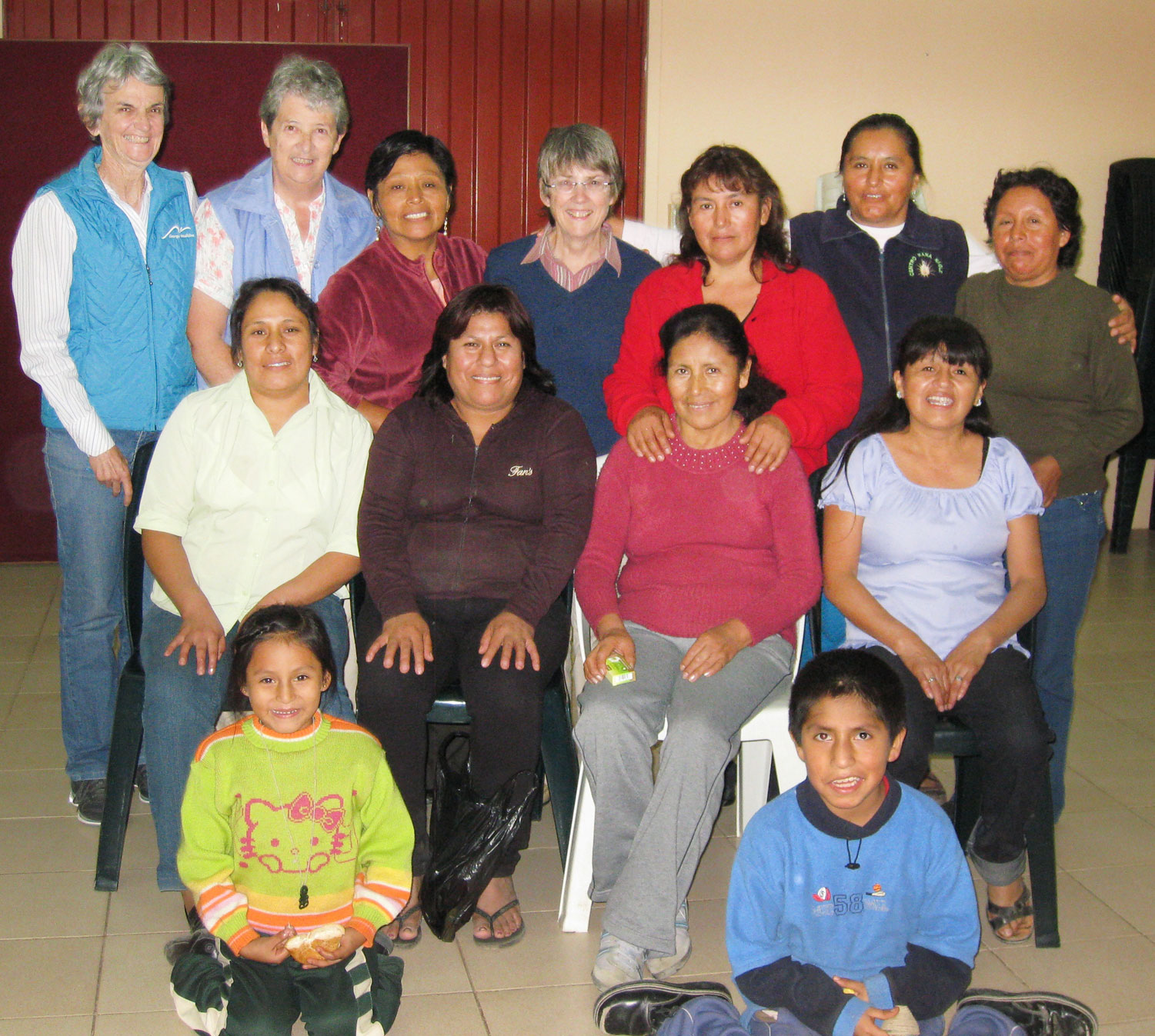 Feature
Feature
Mary-Ann Greaney
September 2013
Peruvian women Sisi, Martha, Meche and Julia have finally succeeded in registering their craft-making venture of several years as a business Huarmy Huaytari (Women Blossoming).
They have been creating original handcrafts and selling them overseas for some years and, until now, have depended on two Presentation Sisters for the sales process. Becoming independent is a remarkable achievement.
As squatters on the old city rubbish dump in Lima, the women have struggled over the past two decades to gain legal title to their home and land though this does not prevent them being moved on if the government wants the land for another purpose. They have been forced to move a number of times without compensation.
They now have electricity, fresh water and sanitation, having had to buy water from tankers and store it in 40-gallon drums in the past. The poor conditions have resulted in some of their children dying from preventable diseases.
Earning a living is a challenge with huge competition for a few jobs and no social welfare. Unsubsidised medical treatment and medicines are out of reach for most people, but Sisi, Martha, Meche, Julia and many of their neighbours have overcome these challenges and more.
The Western world has much to learn from those in developing countries about living simply – having more does not equate to happiness. We consume far more than our fair share of the world’s resources. A growing number of people in New Zealand are increasingly aware that we are living in an unsustainable way and, without change, we are on a fast track to extinction.
Sisi, Martha, Meche and Julia credit two Presentation Sisters with their many achievements including their success as international business women. The sisters moved in 20 years ago as neighbours and the relationship has been mutually life-giving.
Many parishes and organisations have ‘missions’ in other parts of the world. There are stories of fundraising for special projects, sending parcels and visiting when on holiday. When people have been able to visit the mission they support, the relationship is transformed. Technologies like Skype and Viber make it possible for us to get to know people all over the world without leaving our home.
People are the same everywhere. We all strive to live well and in harmony with each other. We want the best for our children – to be able to educate, feed, clothe and house them. We all want productive work with fair wages and safe working conditions. We want to participate in decisions that affect our lives. Living in harmony with creation ensures our own survival and that of all life with whom we share the planet.
If your parish or group works alongside a community in a developing country, you may find they have access to Skype or Viber. Authentic partnerships can be formed once people get to know each other.
I am reminded of a saying from an indigenous elder, ‘If you are coming to help us you are wasting your time. If you are coming because you know your liberation is bound up with ours, then let us work together’.